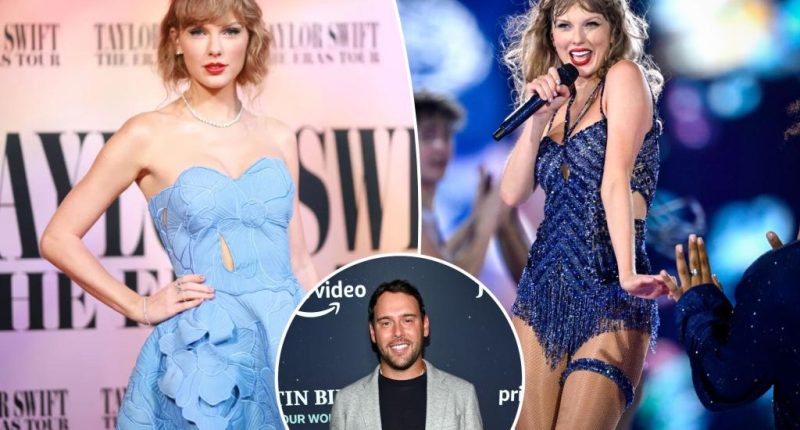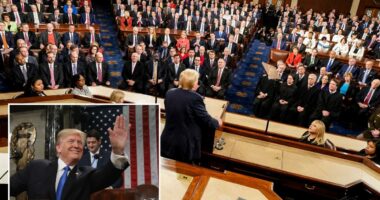Share this @internewscast.com

It may not be such a “Cruel Summer” this year.
According to sources speaking to Page Six, Taylor Swift now has the opportunity to repurchase the original recordings of her first six albums. This follows a previously contentious sale that stands as one of the most dramatic disputes in her career.
Swift’s conflict with music executive Scooter Braun began in 2019 when he acquired the master recordings of her initial albums for $300 million. In response, she decided to re-record these albums as “Taylor’s versions.”
Swift accused Braun, who was known for managing artists like Justin Bieber and previously Kanye West but not Swift herself, of being a “bully” and a symbol of “toxic male privilege in our industry” at that time.
Braun sold the recordings on a year later to investment firm Shamrock Capital for a profit, but the company is now interested in selling them back to Swift.
And, we’re told, the person encouraging Shamrock to do so is Braun.
“Interestingly enough, one of the individuals who is encouraging this deal to take place is Scooter, who was at the center of the deal the first time around alongside Big Machine,” said a source, referencing Swift’s original record label.
The albums back under negotiation are: “Taylor Swift,” “Fearless,” “Speak Now,” “Red,” “1989” and “Reputation.”
Page Six has reached out to representatives for Swift and Shamrock Capital for comment.
The news comes a day after Swift debuted the first re-recording off “Reputation (Taylor’s Version)” on TV show “The Handmaid’s Tale”.
Swift’s mega hit, “Look What You Made Me Do (Taylor’s Version)” featured in a climactic moment on an episode of the program.
If Swift decides to buy back her masters, the price tag would be in the ballpark of $600 to $1 billion — but it would be worth it, according to Clayton Durant, founder of the music consulting firm CAD Management.
He explained that if she owns both the old and new recordings of her songs, she stands to make the lion’s share of publishing royalties from both. She will also have full control over her own catalog and be able to control whether they are licensed for use in commercials, film and TV shows, at political rallies and more.
“If she could claw back and create a deal structure where she could get the rights to her original recordings, she exponentially increases the amount of money she makes,” Durant told Page Six.
“She’s making money off the publishing still from the [original] songs,” but not as much as from the Taylor’s Versions, which she owns, he said.
He also noted, “When she puts out a re-recording version, consumption also spikes on the original.”
When Swift’s masters were sold, she went on record claiming she was never offered the chance to buy them and was unaware of the deal, a stance she has maintained ever since.
However a source told website The Blast the sale “was being discussed with music insiders for almost a year,” and was widely known across the industry.
Meanwhile, sources told Page Six: “Her father, who was a shareholder [in Big Machine], made $16 million dollars,” from the sale and must have known about it. That notion is supported by emails sent at the time showing Scott Swift had contributed to a “data room” for the company which purchased the masters, according to TMZ.
“The team at Shamrock want to make sure that Taylor has knowledge that they are trying to put this deal to her, as they are not sure that she was ever offered them the first time around,” we’re told.
In 2005, when Swift was 15, she inked her first record deal with Big Machine, co-founded by country star Toby Keith, in Nashville, signing on for six studio albums.
When the sale happened in 2019, Swift voiced her upset at Braun as well as Big Machine CEO, Scott Borchetta.
“Scooter has stripped me of my life’s work, that I wasn’t given an opportunity to buy,” Swift wrote in the Tumblr post at the time.
“Essentially, my musical legacy is about to lie in the hands of someone who tried to dismantle it,” she alleged.
Swift’s decision to re-record her first six albums ignited an industry-wide conversation about artists’ ownership of their own work, how labels work and the monetization of songs.
“She’s so rich. She’s already a billionaire. How much further does she want to go? Maybe it’s a principle thing for her,” Durant said.
















